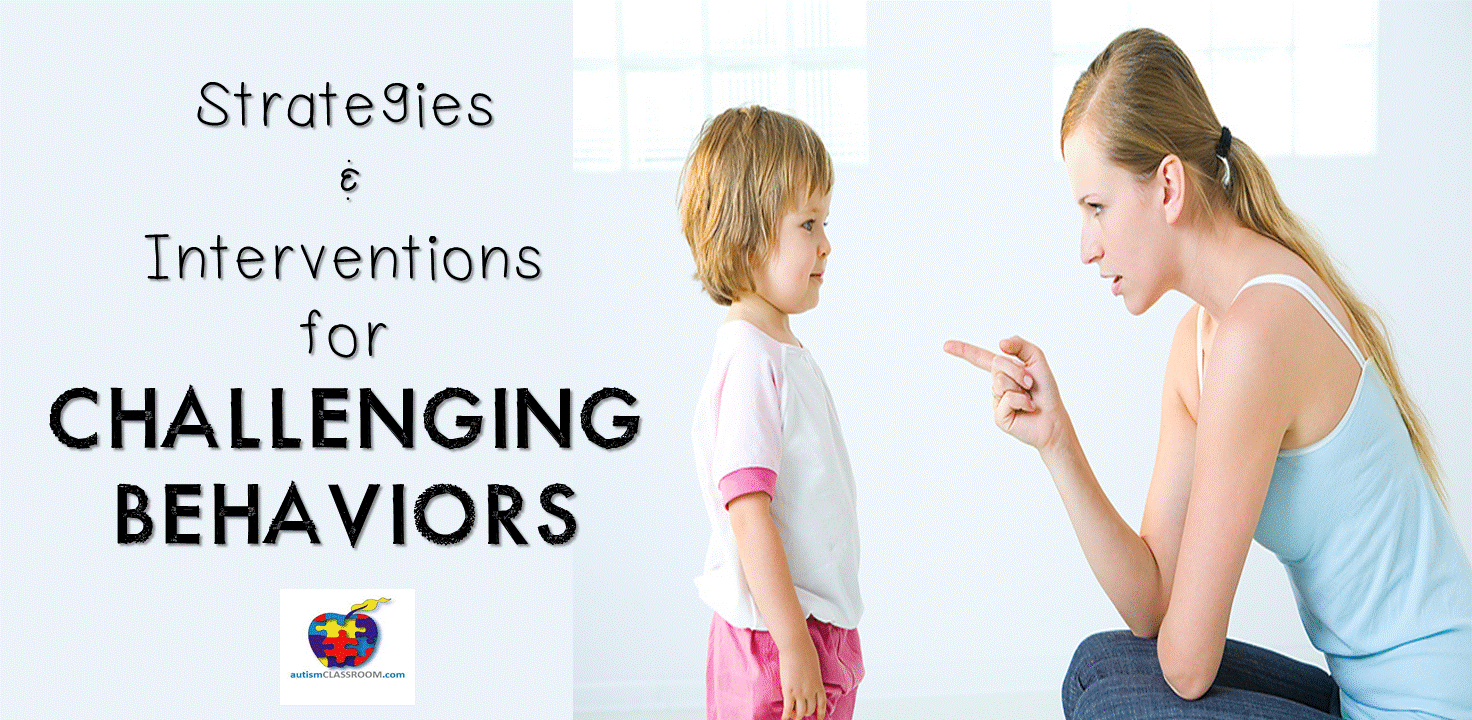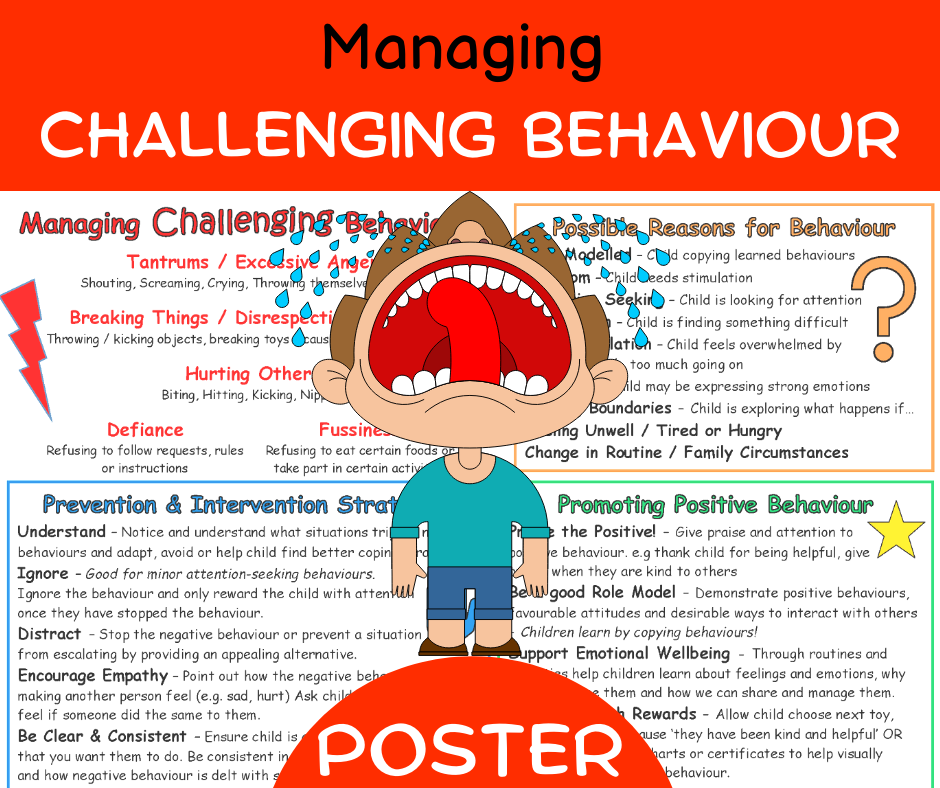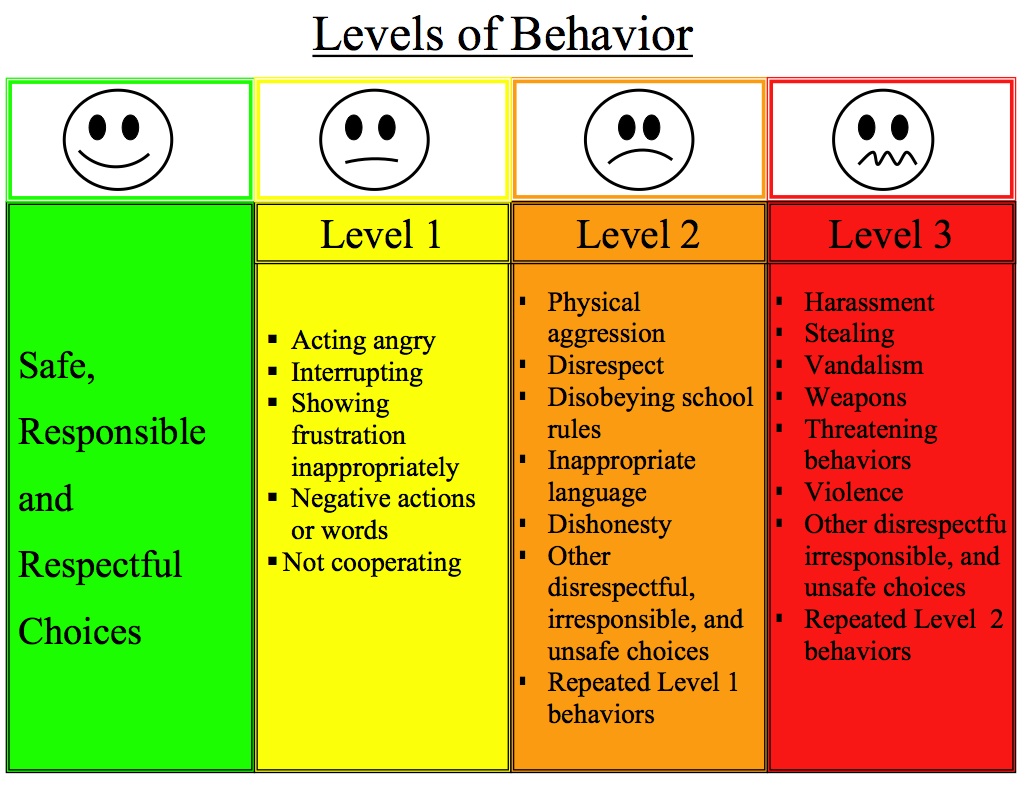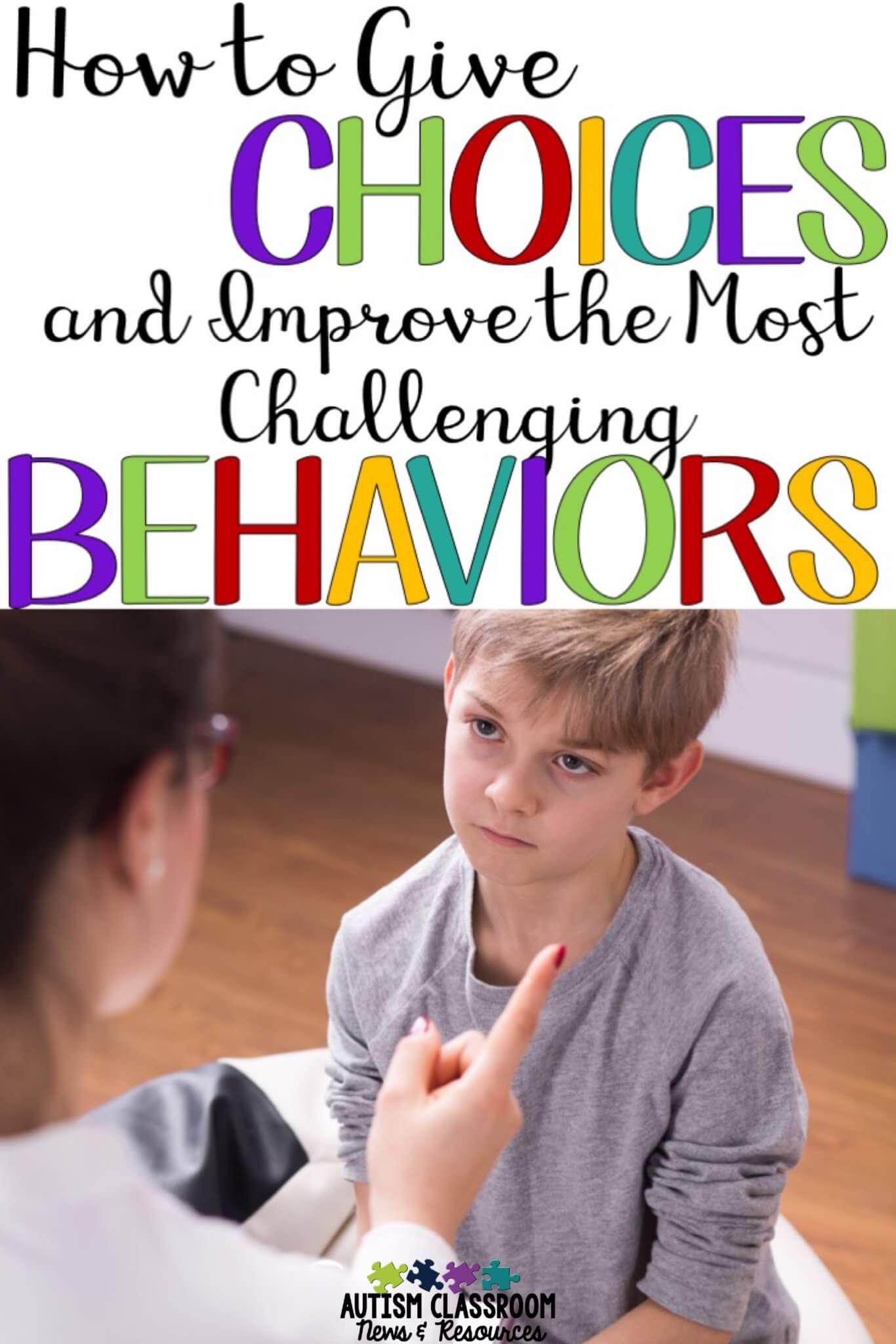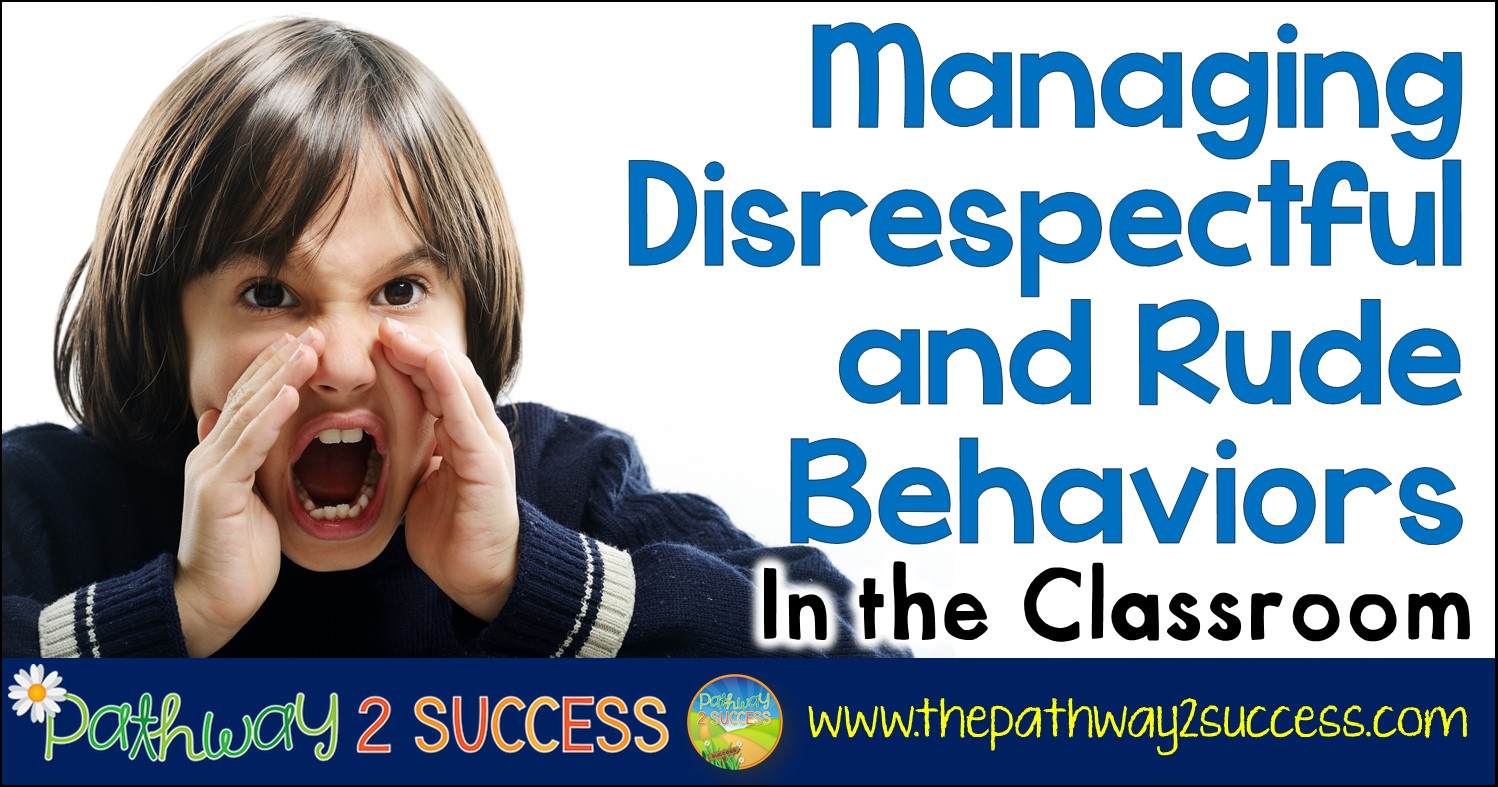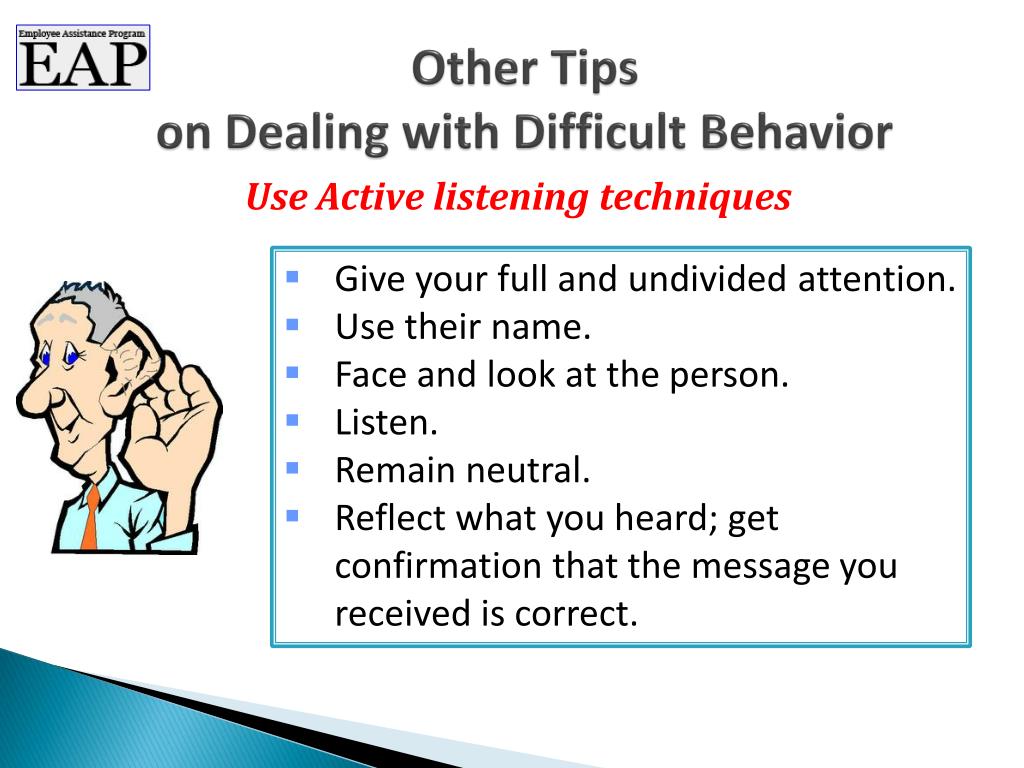Peerless Tips About How To Deal With Difficult Behaviors

Strategies for managing challenging student behaviors displaying curiosity and humility.
How to deal with difficult behaviors. The key to understanding your child understanding and responding to. Physicians should plan effective communication strategies for difficult patients, discuss issues with colleagues, and use relaxation methods to help avoid burnout. As a parent, your job is to help your young toddler.
Try the strategies below to cope with challenging behavior in toddlers. Challenging behaviour is behaviour that can be harmful, risky or creates problems either for the person doing it, or people around. Reframing the negative and challenging watch on most parents, caregivers, teachers,.
Then, think about what causes the target behaviors. How to deal with challenging behavior. 2 responding to problem behavior 3 why transitions trigger problem behavior 4 skills:
Engage in effective coping strategies to manage stress and uncertainty. Challenging behaviour can include: In most cases, part of teaching your child.
These causes are called triggers or “antecedents.” often,. Redirecting behavior can shift a child's focus from a challenging behavior to a more positive one. The first step is picking specific behaviors to target.
Listen attentively — “who,” “what,” “where” and “when” questions help the child to tell you what’s on her mind. Even though i only gave you two examples of how to deal with challenging behaviors in. There are a few options to discourage challenging behavior, including:.
Learning to handle challenging behavior in toddlers. Resources parenting essentials this page may help you handle common parenting challenges. Once we have hypothesized underlying motives for the behaviors, as well.
Once the meltdown is over, you may choose to talk to your child and identify what triggered the problematic behavior. Articles managing difficult behaviors watch on difficult behaviors: As you address challenging behaviors, make it clear what behavior is expected.
Ask “can i help?” “can miranda play with you?” “do you want to sit. These may include hobbies and pleasurable activities, relaxation techniques, and.




